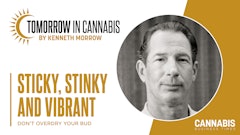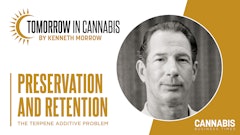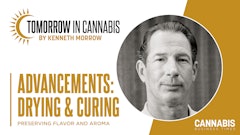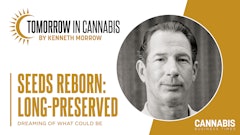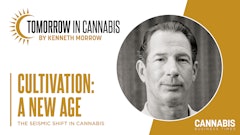The “Wild West” is the term some people have used to describe the possibilities that patents and licensing agreements hold for the future of cannabis extractions. Two events could possibly change the extraction landscape forever: the regulation of cannabis extraction and, as mentioned in a prior column, patents and licensing agreements.
First, regarding cannabis extraction patents, at least four relevant CO2 supercritical or sub-critical extraction patents have been granted or filed:
- Patent #US 8895078 — Inventor Adam Mueller
- Patent #US 9044390 — Inventor Gary J. Speier
- Patents #US 20060167283 — Inventors Flockhart, Wheatley, Dring, Archer
- Patent #US 20150086653 — Inventor GW Pharmaceuticals
Numerous hydrocarbon/butane extraction patents also have been granted or filed:
- Patent #US 9327210 — Inventor Andrew Jones
- Patent #US 20040147769 — Inventor John Henry Davis
- Guild Extracts holds a granted patent for THCA Isolate
- Trichome Technologies has multiple patent applications regarding cannabinoid and terpenoid extraction, isolation and application.
- GW Pharmaceuticals (GW Pharma) holds a patent for hot gas flow through extraction, Patent #US 9034395.
None of these begins to address applications patents, including GW Pharmaceutical’s patent for the use THCV in the protection of pancreatic islet cells, which supports the treatment of diabetic patients. I suspect there will be an incredible amount of similar cannabinoid/terpenoid patents filed rapidly by pharmaceutical companies after they’re legally allowed to research cannabis and all of its uses.
There are formulation patents granted, too. If a company chose to use natural terpenes to mimic the odor and flavor of cannabis for using THC or CBD distillates for vape pen application, they would be in violation of Patent #US 2015/0080, 26581.
All of these patents are just the tip of the iceberg, as there are thousands of cannabis-related patents, some current and some expired. To date, no supporting case law rules in favor of a cannabis patent holder because no patent holder has filed a legal case to enforce his or her patent, although a federal judge recently ruled against a water pipe manufacturer for violation of Starbucks’ trademark.
The Potential for Patent Holders
In theory, the doors are open for cannabis patent holders to file suit against those who violate their intellectual-property patents. Recently, Andrew Jones of Connoisseur Concentrates, a hydrocarbon extraction patent holder, produced and released a video that explained patents and the potential of his patent and other patents like his. As discussed in the video, a patent holder could sue any company that uses the IP or violates the patent, and prevent unlicensed use of covered equipment, method of application or formulation.
For example, GW Pharmaceuticals could issue cease-and-desist letters to all CO2 extractors that use its IP and sue any that don’t stop, though first it would need to establish a priority or differentiate themselves from the other three similar patent holders. The same goes for all hydrocarbon/butane extraction patent holders.
All of this will require very lengthy and costly litigation for all concerned parties. But in the end, there could be one patent holder for all processes that produce cannabinoids and terpenoids, and there could be one hydrocarbon, one CO2 and one terpene isolation patent holder.
To date, no supporting case law rules in favor of a cannabis patent holder because no patent holder has filed a legal case to enforce his or her patent.
Also, as Jones noted, a federal entity issues a patent. That means a state can issue a license for the right to extract, but not the right to use a patent holder’s IP. This also means a patent holder could decide whether to become licensed in a given state based on whether the state recognizes the patent holder’s ownership of the IP.
The IP patent holder could elect to withhold its IP licensing agreement from the state to prevent the legal manufacture of that extract. If the patent holder chose to license the IP to only one company in the state, all others must use a non-protected methodology. All of this is theory and must withstand future legal challenges, but the simple fact that the Jones video exists is very telling, especially when combined with the federal ruling regarding the Starbucks lawsuit.
Cannabis Patents and the Coming Landscape
Some people believe that a cannabis patent can’t be enforced because cannabis is a Schedule I drug. I disagree. Just because the subject matter of a patent is cannabis does not particularly imply cannabis was utilized to form or file a patent. A patent is paper, not pot.
In fact, federal patent law states that patents are to be litigated based on the merit of the patent contents regarding the abstract and claims, not on the subject matter. But what happens when the competitors can’t afford legal bills and litigation? By default, patent holders with the most funding will have the most success.
As cannabis legalization and regulation progress, established guidelines are developed, and permitted extraction facilities begin to produce and operate, they become what I’ve termed “sue-able entities” – legal companies that have a license or permit to operate compliant manufacturing methods and purpose-built facilities with major investments. These companies should try to license technologies and IP rather than litigate. The well-funded entities mentioned above will have a vested interest in technology and IP enforcement to maintain the strategic advantage that licensing creates. They’ll also seek to prevent their competitors from producing similar products.
Future success in the new world of legally regulated cannabis will depend on several other factors. Sourcing the best materials at competitive prices will be key. Companies also will want exclusivity contracts for proprietary cultivars and cultigens, which will require expanding contacts and building relationships. If a business does not have access to the newest, hottest, most desirable concentrate flavors, it will be in constant peril because the market will always demand innovation, improved products and delivery methods.
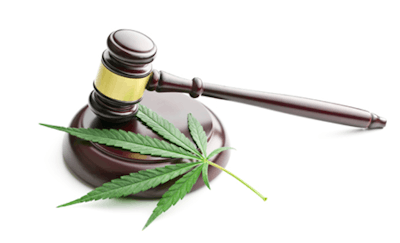
State Regulations That Stifle the Market
Some state regulations seem to have been created without adequate forethought. For example, Washington has a so-called cap on genetics. Regulators stipulated that after a certain date, no new genetics would be allowed across state lines or to appear in the legal cannabis market. This simply stifles the positive development of the industry as a whole and is a detriment to Washington state consumers.
Ultimately, such regulation will have a negative effect on sales and potential tax revenue, creating a lose-lose situation where nobody benefits and potentially forcing otherwise legal entities to break the law if they try to obtain and maintain current genetic specimens. Black-market growers will always have new genetics that legal retailers and growers in Washington can’t distribute or cultivate, which, in essence, encourages consumers to purchase black-market, untaxed cannabis and concentrates rather than purchasing from a stagnated legal market that is prohibited from progress.
Licensing agreements also will be required for certain specialty genetics that are exclusive and not public property. Contracts and agreements that allow for constant access to the most current and popular genetics need to be created and maintained. This all potentially evolves into a company of the future having licensing agreements with multiple breeders or genetics owners, and a licensing agreement to extract, isolate, formulate or use for specific applications, all of which will require multiple lawyers in multiple fields of expertise.
In addition, there are 483 identified compounds unique to cannabis, including more than 60 cannabinoids and more than 140 different terpenes, according to Rudolf Brenneisen’s “Chemistry and Analysis of Phytocannabinoids and Other Constituents.” I expect thousands of new patent applications to be filed soon after research begins in earnest.
Lobbying for Patents and Growth
When I spoke with Jones, he expressed his ultimate desire to create a unified front of cannabis patent holders and industry leaders to lobby and promote the correct methods of cannabis production in existing and emerging legal states. While states won’t help enforce IP, patent holders can help craft state laws by working with states that create a climate of growth in the cannabis industry, and limit production in states that are less receptive. A cannabis union by patent holders would be an effective financial tool in lawmaking, as well as lobbying.
As California begins to license and regulate all things cannabis-related, I suspect it will ultimately be the testbed for all licensing agreements and patent enforcement. It’s the sixth-largest economy in the world and already has a large number of attorneys who specialize in IP and patent issues.
To remain competitive, many companies will likely need to consider licensing IP. If they wait, other companies may have already strategically entered into early licensing agreements and secured exclusivity regarding location.
That being said, it could be a major advantage to have any necessary IP licensed and secured as early as possible — and I suspect current patent holders will remember who acted in good faith and honored their IP.









